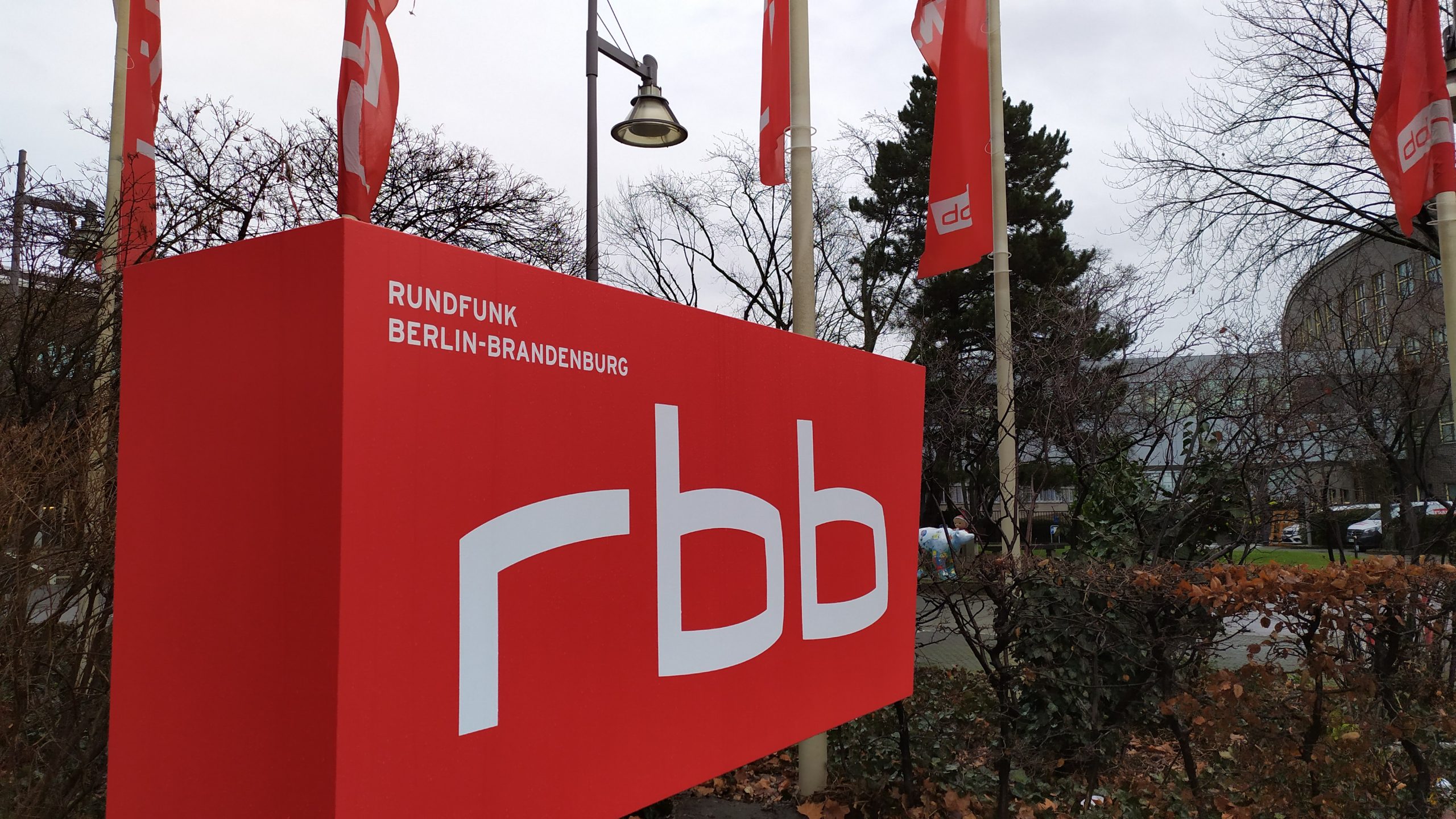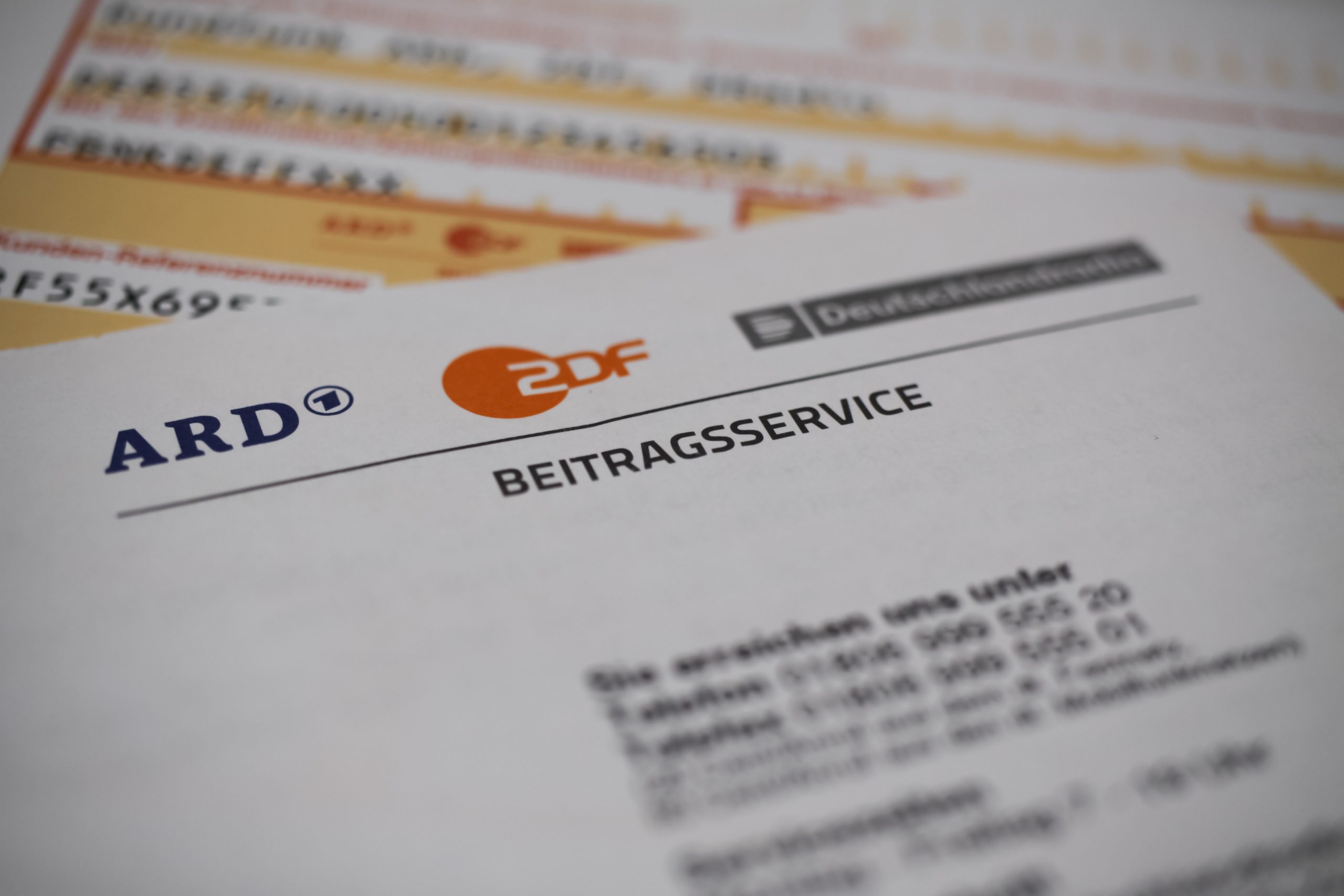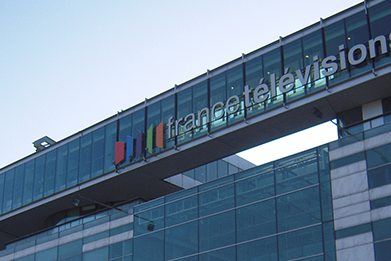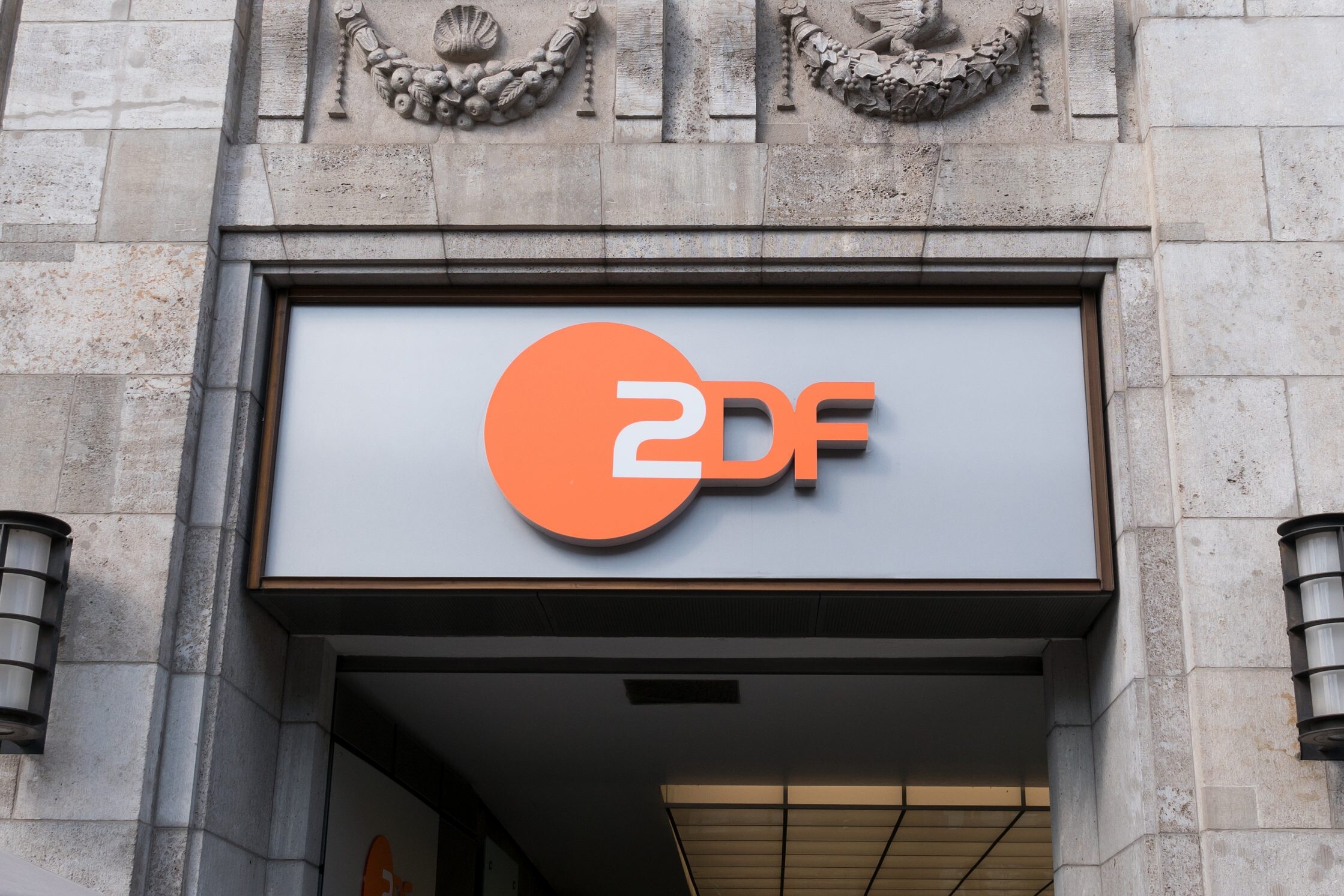Germany: Trust, accountability, and transparency are critical for public media
16th August 2022
Following the resignation of both the head and chair of Berlin’s public broadcaster, accountability is imperative. But this must not be used as a wider tool with which to attack and delegitimise public service media organisations.

The two top executive leaders at the Berlin public broadcaster, Rundfunk Berlin-Brandenberg (rbb), have resigned from their positions after allegations of embezzlement and misuse of public funds were raised against them. Both the director, Patricia Schlesinger, and the chair of the board, Wolf-Dieter Wolf, resigned last Sunday.
Several days earlier, Ms. Schlesinger resigned from her position as the chair of ARD, the public broadcasting network made up of nine regional public broadcasters, including rbb, and Deutsche Welle. Yesterday, the Broadcasting Council formally initiated the termination of her contract at rbb.
This affair has rocked German public broadcasting, but it is imperative public service media organisations are not undermined or defunded consequently. Ultimately, this episode has exemplified the independence and editorial freedom of rbb’s newsroom, holding its own power to account, on behalf of the public.
Accusations over the awarding of contracts, and improper spending
Patricia Schlesinger was the artistic director of rbb since 2016. Allegations of improper spending and nepotism first surfaced in June in a Business Insider article. The article alleged Ms. Schlesinger’s husband was awarded a “lucrative consulting job” and also implicated Mr. Wolf in the affair. Business Insider subsequently reported allegations that both executives were responsible for the awarding of “dubious consultancy contracts”.
The accusations of improper spending against Ms. Schlesinger include the use of work limousines for personal errands. There have also been suggestions that private dinners at Ms. Schlesinger’s apartment were put on expenses. She has also faced public and internal pressure for having her salary increased by 16 percent at a time when rbb has struggled with its own budget.
“This is a crisis and crises do not go through unscathed” – Friederike von Kirchbach, chair of the Broadcasting Council.
Since her resignation, further reports which allege misspending have surfaced, including stories of Ms. Schlesinger receiving a bonus of €20,000 in 2021, a €650,000 office renovation, and a €1,299 massage chair.
Both Ms. Schlesinger and Mr. Wolf have denied the allegations.
Investigations commenced
The day after both their resignations, the Berlin public prosecutor’s office told RBB they had launched an investigation into Ms. Schlesinger, her husband, and Mr. Wolf. Three days later, the investigation was escalated to the Attorney General. This only happens in cases “of outstanding importance”, the Berlin public prosecutor’s spokesperson, Sebastian Büchner, told RBB.
Additionally, the broadcasting council – the body which sits above ARD and ensures public accountability for the broadcasters – has announced it will be meeting to discuss their next action.
“All of us on ARD are now disappointed and angry,” said the new chair of ARD, Tom Buhrow, who stepped in following Ms. Schlesinger’s resignation. “Because all broadcasters came under general suspicion, as did thousands of employees who do a good job every day – including the rbb employees who now uphold the journalistic honour of rbb.”
Wir in der ARD sind fassungslos über den Inhalt der sich ständig erweiternden Vorwürfe gegen Patricia Schlesinger. ARD-Vorsitzender Tom Buhrow fordert im dpa-Interview eine lückenlose und transparente Aufklärung. pic.twitter.com/wnrhq3eT67
— ARD (@ARD_Presse) August 12, 2022
rbb itself has launched an investigation into the allegations. Editor-in-chief, David Biesinger, said a team of five rbb journalists are working collaboratively “to get clarity ourselves, an independent set of facts. That’s what we do best.”
“The worst crisis in public service broadcasting”
Since the volume of accusations against Ms. Schlesinger has escalated, the threat of potential repercussions for Germany’s entire public broadcasting sector has become more apparent.
“The entire ARD suffers from the fact that the boardroom has acted in an uncontrolled manner – if the allegations are true,” said Mr. Buhrow, who is also the director of regional public media organisation, WDR. The media journalist, Stefan Niggemeier, told the ARD programme Tagesthemen that “The damage to ARD is immense.”
According to the rbb media expert, Jörg Wagner, the current situation is “the worst crisis in public service broadcasting.” The chair of the Broadcasting Council, Friederike von Kirchbach said there would undoubtedly be consequences. She told rbb, “This is a crisis and crises do not go through unscathed.”
Journalists at rbb feared for the implications. “Everything that went well is now in danger of being lost,” said Marcel Kuring, who works in the administrative side of rbb. “I hope we don’t fall into a twilight state again and lose ourselves in the Small-small, instead of creating real reform.”
rbb journalists have already faced abuse from the public because of the accusations against Ms. Schlesinger. The Media Freedom Rapid Response issued an alert on Tuesday. The German Journalists Association (DJV) denounced the abuse, while the European Federation of Journalists (EFJ) stated that “RBB journalists are not responsible for the [alleged] wrongdoings of some of their managers.”
Die Affäre #Schlesinger ist Wasser auf die Mühlen aller Feinde des öffentlich-rechtlichen Rundfunks, des Rundfunkbeitrags und der unabhängigen Medien insgesamt. Das haben weder die Kolleg*innen beim #RBB noch der öffentlich-rechtliche Rundfunk verdient. https://t.co/MlEjPewbiZ
— Journalisten-Verband (@DJVde) August 8, 2022
But there have already been moves within some circles to establish the scandal as a symptom of a wider illness in German public media. “The scandal … has exposed the crisis in public broadcasting,” was one editorial in the liberal-conservative magazine, Tichys Einblick.
Trust, accountability & transparency
The incident has already been hugely damaging for rbb, ARD, and the wider public service media sector in Germany. As publicly funded bodies, acting in the public interest as a public service, it is critical public media organisations are transparent and accountable. This is even more critical in a country where the licence fee in compulsory for almost everyone.
Because of the entire affair, thorough reviews will have to be completed to restore faith, so the public can rely on and trust in rbb and other public media organisations. Any actions following the investigations must be driven by ensuring the organisation is accountable and transparent, which will go a long way to restoring and maintaining trust.
Read more: Timeline of accusations surfacing against Patricia Schlesinger (German)
However, what the incident has demonstrated is the independence and editorial freedom of the public broadcaster. The staff at rbb – where journalists are said to be “concerned, angry, stunned” – have been committed to reporting on, exposing, and analysing the allegations. This has been replicated at other public media organisations, including DW and ZDF. Even when public media’s own reputation is at stake, the organisations have been dedicated in providing the public interest journalism they are funded to do.
It has also made this reporting as prominent and public as possible. rbb has established a page on its website, easily navigable as the first section on the menu, wholly dedicated to stories about Ms. Schlesinger’s resignation. There is another page for stories on rbb radio’s website. A 19-minute special report has also been aired by rbb examining the situation.
Ultimately, whatever the findings, it must not impact public media’s role in German society. It cannot be used as a ploy to undermine, defund, or diminish public service media. As public media in nearby countries face questions, attacks, and funding troubles, there needs to be a recognition and respect of the critical role public media performs in the media environment and in democratic society.
Related Posts
22nd June 2022
Germany: Federal states reach agreement on public media reform
After years of negotiations, Germany's…
17th March 2022
France: Public media scrutinised ahead of election
Ahead of France's presidential election…


